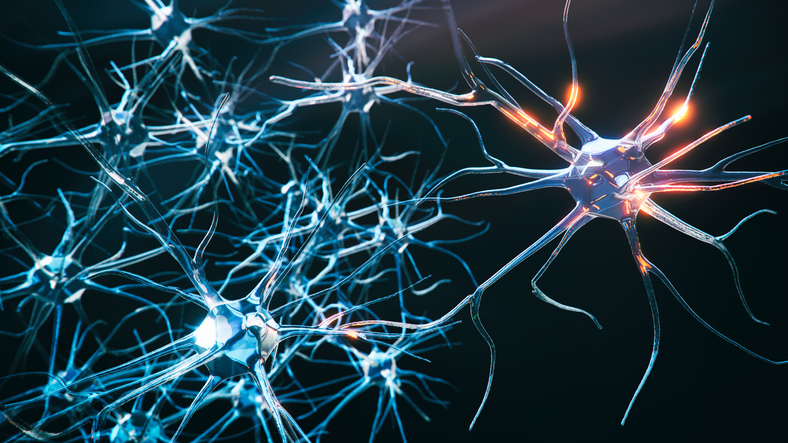
Parkinson’s disease patients lack sufficient amounts of a neurotransmitter that plays a key role in the brain’s ability to control movement and motor coordination. While drugs are available to address this deficiency, their effectiveness wanes over time. Aspen Neurosciences aims to treat Parkinson’s with a cell therapy. The biotech now has $147.5 million in new funding as it prepares for a first test in humans that could show not only how its technology works, but also whether it offers an edge over a Bayer cell therapy already in the clinic.

Behavioral Health, Interoperability and eConsent: Meeting the Demands of CMS Final Rule Compliance
In a webinar on April 16 at 1pm ET, Aneesh Chopra will moderate a discussion with executives from DocuSign, Velatura, and behavioral health providers on eConsent, health information exchange and compliance with the CMS Final Rule on interoperability.
The Series B round of financing announced Monday was co-led by GV, LYFE Capital, and Revelation Partners.
The key brain chemical lacking in Parkinson’s patients is dopamine, which comes from dopamine-producing neurons. According to Aspen, about half of these neurons are lost before a patient’s Parkinson’s is diagnosed. The San Diego-based biotech aims to use cell therapy to replace these neurons to restore the release of dopamine and reconstruct neural networks.
Aspen makes its cell therapy, called ANPD001, from induced pluripotent stem cells (iPSCs), which have the potential to become almost any type of human cell. The biotech induces these cells to become dopamine-producing neurons. Just before those cells mature, they are transplanted into the patient.
Aspen’s approach is a personalized one. The stem cells come from a skin biopsy of the patient. Prior to transplantation of the autologous cell therapy back into the patient, Aspen uses artificial intelligence to evaluate the potential effectiveness of the cells. The company claims its process reduces the time and cost of manufacturing a personalized cell therapy. Aspen also claims another advantage: avoidance of immune system suppressing drugs. Because the therapy is derived from a patient’s own cells, no immune-suppressing drugs are needed to prevent the immune system from rejecting the cell therapy.

A Deep-dive Into Specialty Pharma
A specialty drug is a class of prescription medications used to treat complex, chronic or rare medical conditions. Although this classification was originally intended to define the treatment of rare, also termed “orphan” diseases, affecting fewer than 200,000 people in the US, more recently, specialty drugs have emerged as the cornerstone of treatment for chronic and complex diseases such as cancer, autoimmune conditions, diabetes, hepatitis C, and HIV/AIDS.
Bayer is taking a similar approach to treating Parkinson’s. Like Aspen, the pharmaceutical giant is developing a cell therapy that would be implanted into the patient to restore dopamine production. However, Bayer’s cell therapy is allogeneic—the iPSCs come from healthy donors. This off-the-shelf approach is intended to offer its own advantages. Personalized cell therapies, such as CAR T-therapies for cancer, require an expensive, multi-step manufacturing process that takes a long time. But an off-the-shelf approach could result in therapies that are readily available from a manufacturing process that is more scalable.
The experimental Bayer Parkinson’s cell therapy, DA01, comes from BlueRock Therapeutics, a biotech joint venture that the pharmaceutical giant had formed with Versant Ventures in 2016. In 2019, Bayer fully acquired BlueRock for $240 million up front and another $360 million tied to the achievement of milestones.
Bayer advanced the BlueRock Parkinson’s cell therapy into human testing last summer, a Phase 1 clinical trial enrolling about a dozen patients. Those patients will take medicines to partially suppress their immune system for one year in order to prevent the body from rejecting the transplanted cells. Study participants will then be monitored for two years to assess tolerability to the treatment and the survival of the transplanted cells. Christian Rommel, head of research and development at Bayer’s pharmaceuticals division, told MedCity News in an interview during the J.P. Morgan Health Care Conference in January that preliminary clinical data from the study could come within the next year.
According to Aspen, its lab and preclinical studies have demonstrated that its approach can produce dopamine-releasing neurons. The company is preparing to submit an investigational new drug application to the FDA. If the agency accepts the filing, the company could proceed to patient screening and a planned Phase 1/2a clinical trial. Damien McDevitt, Aspen’s president and CEO, said in a prepared statement that the Series B financing will also support development of other therapies in the company’s pipeline, including autologous gene-corrected cells and programs that explore the treatment of other neurological diseases.
Since its founding in 2018, Aspen says it has raised more than $220 million. Other disclosed participants in the latest financing include new investors Newton Investment Management, EDBI, LifeForce Capital, Medical Excellence Capital Partners, Mirae Asset Capital, NS Investment. Earlier investors OrbiMed, Arch Venture Partners, Frazier Life Sciences, Section32 and Alexandria Venture Investments also participated in the Series B round.
Image: koto_feja, Getty Images












